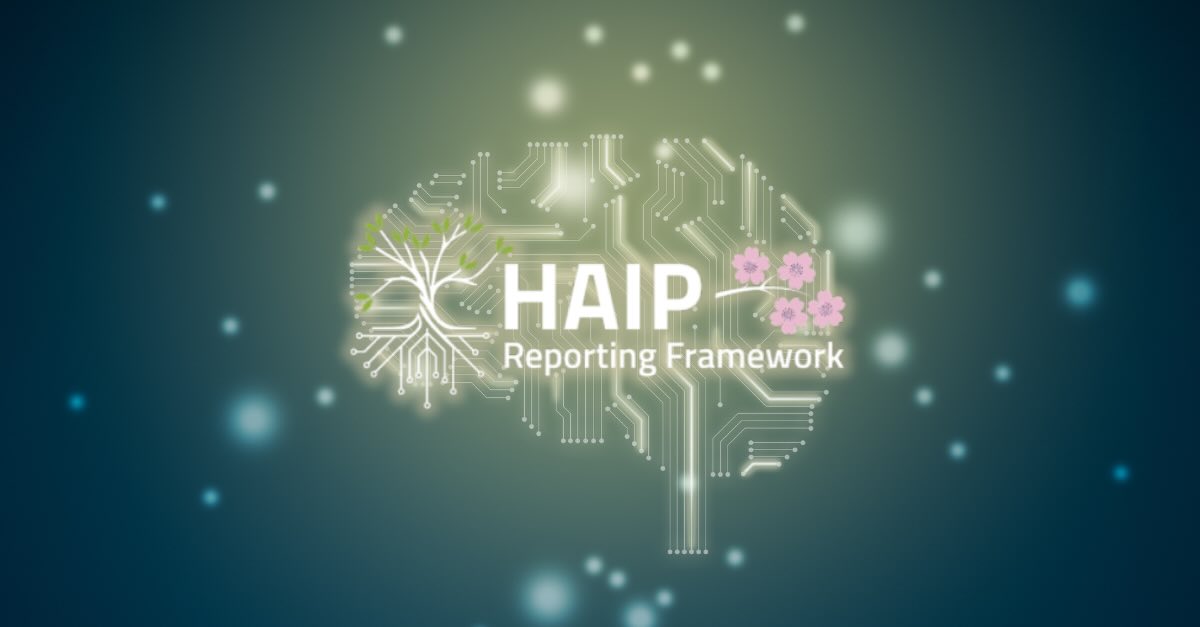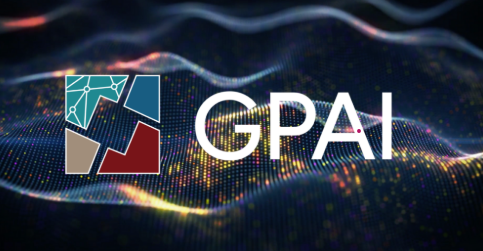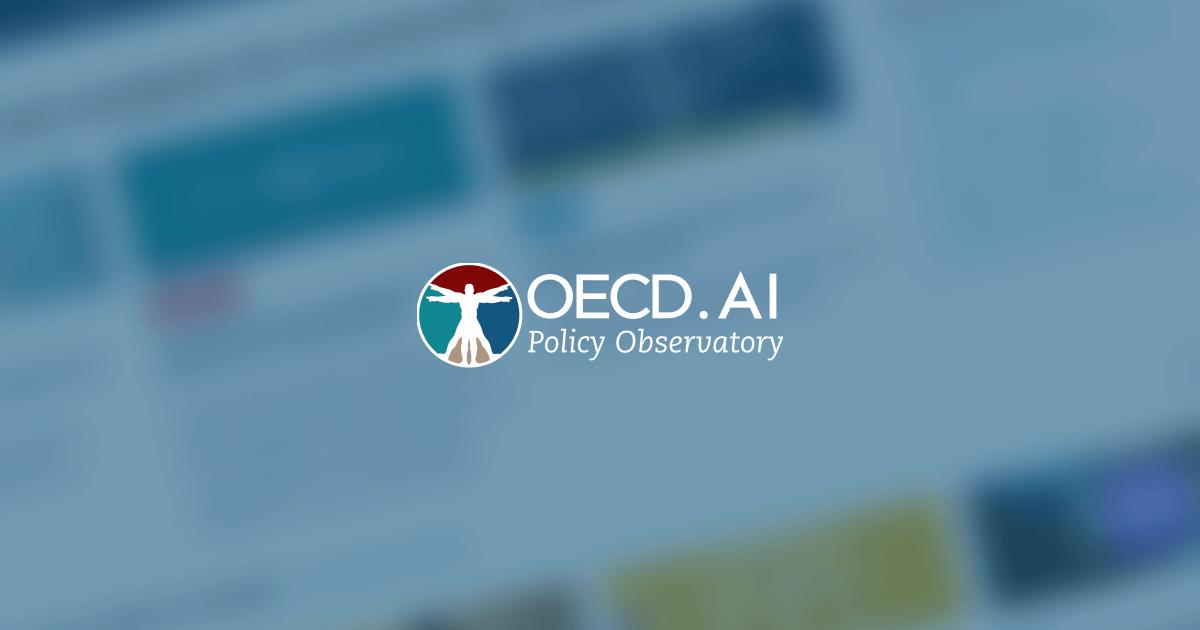To access AI-WIPS 2021 Conference contents, please click here.
21 February 2022
📹 Conversation with Jim Bessen on AI, Innovation, Productivity, and Work
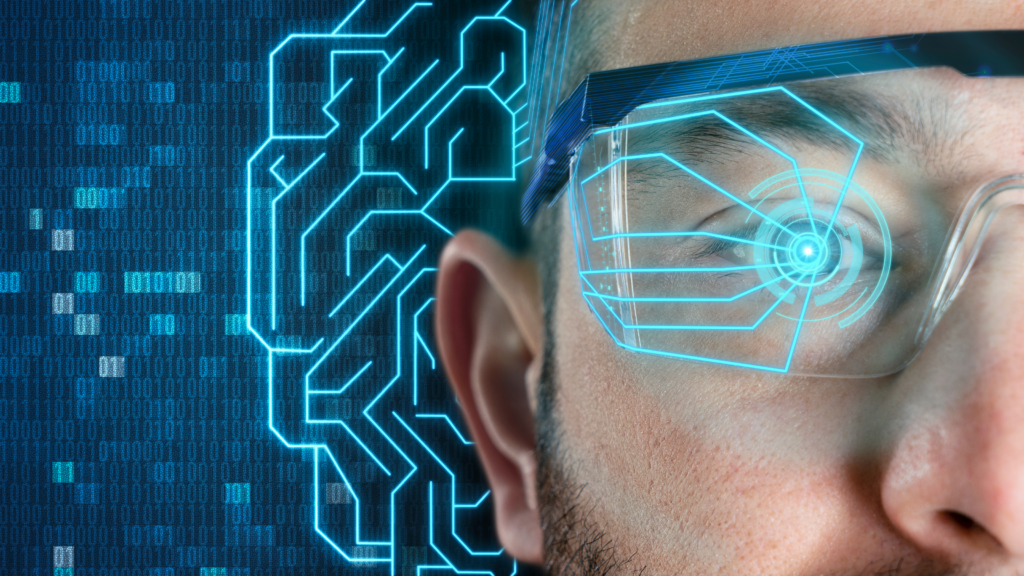
Description: 30 mins. AI is reshaping economies and societies across the world, improving efficiency, lowering costs, and promising to generate productivity gains. At the same time AI changes the way we work, has the potential to replace some jobs and transform many occupations. This opening one-on-one discussion will touch upon these issues, examining the role of AI for economies and societies, the implications for labour, innovation, productivity and human capital, and for policy related to those areas, thus setting the scene for the events of the week.
Moderator: Dirk Pilat, Deputy Director, Directorate for Science, Technology and Innovation, OECD
Speaker: Jim Bessen, Boston University School of Law
📹 AI, productivity, and diffusion

Description: 60 mins. The availability of AI systems and applications has been surging in the recent years, however the practical diffusion and use of AI technologies are still at relatively early stages across many countries and firms, and their implications for productivity are still unclear. This session explores the current understanding and the most recent evidence on the diffusion of AI, the characteristics of AI adopters, and the implications of AI use for productivity, also leveraging information recently available in administrative or exploratory data. It will then examine the policy implications of that evidence, and the related challenges and opportunities.
Moderator: Steve Lohr, Reporter, New York Times
Setting the scene: Flavio Calvino, Economist, Directorate for Science, Technology and Innovation, OECD
Panellists: Lucilla Sioli, Director, Artificial Intelligence and Digital Industry – Directorate-General CONNECT, European Commission | Kristina McElheran, Assistant Professor of Strategy, Department of Management, University of Toronto, Scarborough and Rotman | Frederic Warzynski, Professor, Aarhus University | Francesca Lazzeri – Principle Data Scientist Manager, Microsoft; Adjunct Professor, Columbia University
📹 Discrimination and AI in the workplace

Description: 60 mins. Discrimination in hiring and at work is longstanding and widespread. A meta-analysis of 30 years of experiments in the United States found that white job applicants were 36% more likely to receive a callback than equally qualified African Americans, and 24% more likely than Latinos – with little significant evolution between 1989 and 2015 . As AI systems are increasingly used in recruitment and hiring, as well as in worker management and evaluation, they have the potential to contribute to reducing discrimination at work by formalizing rules in management processes. Yet AI systems often struggle with bias, both at the system level and at the data or input level, and risk replicating biases at scale, reinforcing historical patterns of disadvantage. This panel will focus on potential policy responses. Are existing anti-discrimination laws sufficient? Or is there a need for new legislation (e.g. banning certain use types, or mandating bias audits)?
Moderator: Emma Nelson, journalist
Panellists: Joanna Goodey, Head of Research and Data Unit, European Union Agency for Fundamental Rights | Keith Sonderling, Commissioner, United States Equal Employment Opportunity Commission | Lorraine Finlay, Commissioner, Australian Human Rights Commission | Pauline Kim, Professor of Law, Washington University in St. Louis
Closing remarks by Stefano Scarpetta, Director for Employment, Labour, and Social Affairs, OECD.
Check out some resources from the speakers and institutions on the panel:
Kim, Pauline, Race-Aware Algorithms: Fairness, Nondiscrimination and Affirmative Action (January 26, 2022). California Law Review, Forthcoming, Washington University in St. Louis Legal Studies Research Paper No. 22-01-02, Available at SSRN: https://ssrn.com/abstract=4018414
Kim, Pauline, Data-Driven Discrimination at Work (April 19, 2017). William & Mary Law Review, Vol. 48, pp. 857-936 (2017), Washington University in St. Louis Legal Studies Research Paper No. 6-12-01, Available at SSRN: https://ssrn.com/abstract=2801251
Sonderling, Keith: Is artificial intelligence ready for the great rehiring? (July 29, 2021). World Economic Forum, Available at: https://www.weforum.org/agenda/2021/07/is-ai-ready-for-the-great-rehiring/
Sonderling, Keith: How People Analytics Can Prevent Algorithmic Bias (December 6, 2021). International Association for Human Resource Information Management, Issue 4, Available at: https://www.ihrim.org/2021/12/how-people-analytics-can-prevent-algorithmic-bias-by-commissioner-keith-e-sonderling/
European Union Agency for Fundamental Rights: Getting the future right – Artificial intelligence and fundamental rights (December 14, 2020). Available at: https://fra.europa.eu/en/publication/2020/artificial-intelligence-and-fundamental-rights
Australian Human Rights Commission: Human Rights and Technology Final Report (May 27, 2021). Available at: https://humanrights.gov.au/our-work/rights-and-freedoms/publications/human-rights-and-technology-final-report-2021
📹 Informing AI policy: Data in education, jobs, software development and more
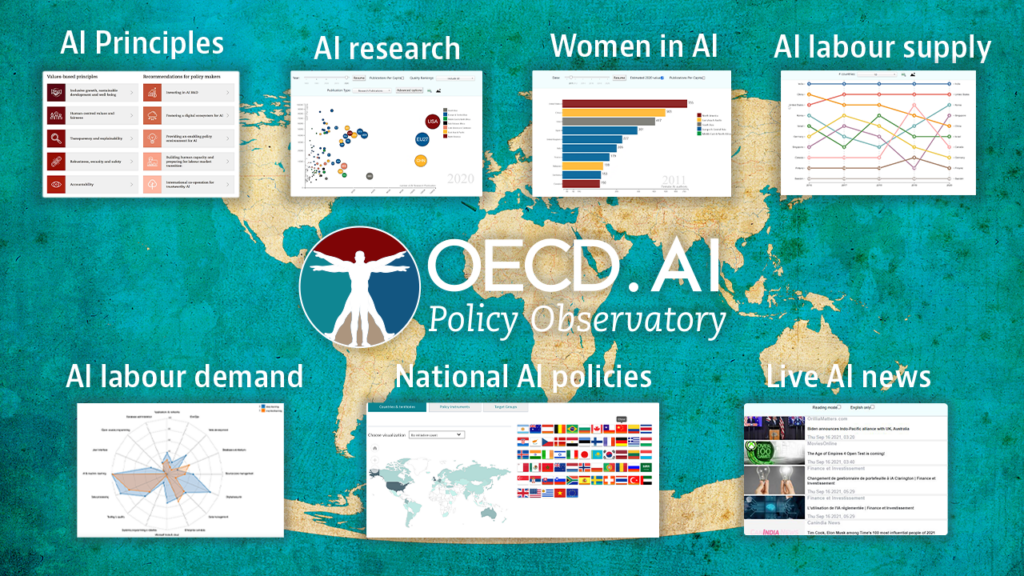
Description: 60 mins. As AI diffusion and adoption evolve apace, timely data on AI education, jobs, skills, research and other areas can help inform policy. At this session, the OECD will launch a set of new indicators and interactive visualisations showing supply of AI education, jobs and skills and software development. This session will feature a short demonstration of new interactive datasets available on the OECD’s AI Policy Observatory (OECD.AI), followed by an exchange with OECD.AI data partners.
Moderator: Audrey Plonk, Head of the Digital Economy Policy Division, OECD
Panellists: Vilas Dhar, President and Trustee, Patrick J. McGovern Foundation | Tim Jurka, Senior Director of Data Engineering, LinkedIn | Dunja Mladenic, Head of Artificial Intelligence Laboratory, Jozef Stefan Institute | Thijs van Vugt, Director Analytics and Consulting Team, Studyportals | Markus Dicks, Head, German AI Observatory, German Federal Ministry of Labour and Social Affairs
📹 Conversation with Daron Acemoglu on AI, automation and skills

Description: 30 mins. AI will radically change the nature of work and profoundly impact labour markets across OECD economies, for better or for worse. Indeed, AI will expand the set of tasks that can be automated but will also lead to the creation of new tasks that cannot be performed by machines. During this session, Daron Acemoglu (Institute Professor, Department of Economics, Massachusetts Institute of Technology) and Stefano Scarpetta (Director of the Employment, Labour and Social Affairs Directorate, OECD) will discuss the impact of AI and automation technologies on work, the implications in terms of skills that will be required, and how public policies can help to make sure that the adoption of these new technologies is beneficial for all.
Moderator: Stefano Scarpetta, OECD Director for Employment, Labour, and Social Affairs
Speaker: Daron Acemoglu, Professor, Department of Economics, Massachusetts Institute of Technology
22 February 2022
📹 Benchmarks and competitions: How do they help us evaluate AI?

Description: 60 mins. Along with the constant development of AI, evaluating what systems can and cannot do has become a challenging necessity for understanding AI’s impact on our societies and guiding future policies. The session will describe some of the ways that computer scientists have evaluated AI systems. It will first consider competitions and benchmarks that have been used in the field, including the well-known Turing Test, work on games such as chess and Go, as well as more specialised datasets. The session will then discuss the more formal evaluation campaigns of the United States National Institute of Standards and Technology (NIST) and the French Laboratoire National de Métrologie et d’Essais (LNE). The speakers will discuss the insights and limitations of these different ways of evaluating AI.
Moderator: José Hernandez-Orallo, Professor, Universitat Politècnica de València, Spain; Senior Research Fellow. Leverhulme Centre for the Future of Intelligence, University of Cambridge, UK
Panellists: Anthony Cohn, Professor of Automated Reasoning, University of Leeds | Guillaume Avrin, Manager, LNE | Lucy Cheke, Lecturer, Department of Psychology, University of Cambridge
📹 AI adoption in industry and a new firm survey

Description: 60 mins. Widespread adoption and use of AI in business could help to raise labour productivity, one of overarching economic challenge currently facing OECD countries. However, the diffusion and use of AI technologies are still at an early level of maturity across most countries, sectors and firms. The session involves a discussion with experts in AI from industry, from both large firms and SMEs, as well as leaders of institutions working to accelerate AI adoption. The industry practitioners will consider the day-to-day challenges and opportunities of adopting and using AI and how these differ across firms of different sizes. In the light of the experts’ experiences, the discussion will also explore what governments should best do to assist the uptake of AI in industry. As background, the OECD will also briefly present progress in developing a new international survey aimed at examining these same issues.
Moderator: Alistair Nolan, Senior Policy Analyst, OECD
Panellists: Benoit Bergeret, Head, Metalab for data, technology and society at ESSEC Business School; co-founder and board-member, Hub France IA (French AI Hub) | Pekka Ala-Pietilä – CEO and co-founder, Blyk; President, Nokia Corporation; President, Nokia Mobile Phones | Julian David – CEO TechUK | Cecilia Warrol – Senior expert in manufacturing and industrial R&D, Swedish Association of Engineering Industries (Teknikföretagen).
📹 Training for AI adoption in enterprises

Description: 60 mins. The ability of individuals to develop, understand and be able to work with AI is key for the successful adoption of AI in enterprises. But what skills are needed and by whom? And what forms of training are best suited to roll-out and adapt AI solutions in workplaces? This session will bring together policy-makers, academics and industry representatives to discuss the skill needs for the successful adoption of AI in economies; the success factors and challenges of training managers and employees for the adoption of AI; and what policy can do to support enterprises and individuals to gain the relevant skills.
Moderator: Emma Nelson, journalist
Panelists: Mary Lyons, Director of Enterprises, Employees and Skills, SOLAS Ireland | Matthew Forshaw, Senior Advisor for Skills to the Alan Turing Institute; Senior Lecturer in Data Science, Newcastle University | Arti Garg, AI Chief Strategist and Head of Advanced Solutions & Technologies, Hewlett Packard Enterprise | Enrique David Espinosa, Team Lead, Innovation Laboratory, Toyota Manufacturing Canada | Glenda Quintini, Senior Economist in Skills Analysis and Policy, Directorate for Employment, Labour and Social Affairs, OECD
📹 Enabling effective AI policies: Launch of the OECD Framework for Classifying AI Systems
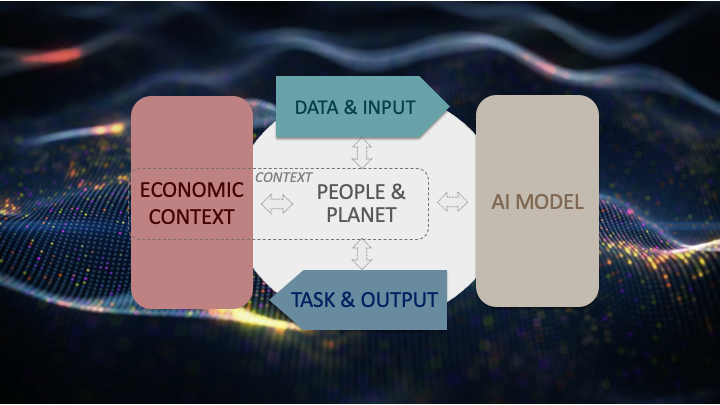
Description: 60 mins. The OECD.AI Network of Experts is launching a user-friendly framework that will allow policy makers to classify different types of applied AI systems. The framework helps distinguish AI applications according to their potential impact on individuals, society and the planet. Participants will discuss the tool in detail and present concrete examples of how to apply the framework. The panel will also look ahead and discuss the next step for this work: designing an AI risk assessment method building on the Framework.
Moderator: Karine Perset, Head of AI Unit and OECD.AI, OECD Digital Economy Policy Division
Panelists: Sebastian Hallensleben, Head of Digitalisation and AI, VDE Association for Electrical, Electronic & Information Technologies | Dewey Murdick, Director at Georgetown’s Center for Security and Emerging Technology | Viknesh Sounderajah, PhD Clinical Research Fellow, Imperial College of London Department of Surgery and Cancer | Marko Grobelnik, AI Researcher & Digital Champion – AI Lab of Slovenia’s Jozef Stefan Institute | Olivia Erdelyi, Director of Ethics and Policy, Soul Machines
23 February 2022
📹 Conversation between Marjory Blumenthal and Professors Ross King and Hiroaki Kitano on the growing importance of AI in science

Description: 30 mins. In a context where some scholars claim that the productivity of science is stagnating, and when research breakthroughs are essential to addressing global challenges – from climate change to ageing populations – accelerating progress in science is critical. AI could raise the pace of progress in science and discovery, helping boost the contribution of innovation and science to long-term improvements in living standards. The session discussants will consider how AI is being used in the scientific process, what the impacts of AI are and could be, what steps governments should prioritise to help amplify the impacts of AI on science, and what AI could achieve in science in the medium-term.
Moderator: Marjory Blumenthal, Director of Technology and International Affairs, Carnegie Endowment for International Peace; former Executive Director of the President of the United States’ Council of Advisors on Science and Technology
Panelists: Ross King, Professor of Machine Intelligence at Chalmers University of Technology | Horoaki Kitano, President and CEO of Sony Computer Science Laboratories; Group Director, Laboratory for Disease Systems Modeling, inter alia.
📹 Shaping coherent policies for AI: High-level Ministerial session

Description: 60 mins. As the general purpose technology of our era, AI will have a profound effect on every sector of the economy and many parts of society. The OECD is working to generate new internationally comparable evidence on AI technologies and their impact on work, innovation, productivity and skills, to help countries develop a coherent, multidisciplinary approach across policy domains. For instance, work shows that higher exposure to AI technologies may be a good thing for workers as long as they have the skills to use them effectively. And, while AI is one of the major forces behind the need for retraining, it can also be part of the solution, reducing barriers to training. At the same time, the relative concentration of AI in some countries, sectors and actors implies that the scale of these opportunities and challenges differs across firms. This session will invite senior policy makers to discuss key issues and the emerging policy actions in their domains that will help to make the most of AI technologies while minimising their potential risks and ensuring that AI upholds shared social values and individual rights.
Moderator: Ulrik Vestergaard Knudsen, Deputy Secretary-General, OECD
Panelists: Mathias Cormann, OECD Secretary-General | H.E. Hubertus Heil, German Federal Minister of Labour and Social Affairs (pre-recorded remarks) | H.E. Kersti Kaljulaid, former President of Estonia
📹 AI for labour market matching

Description: 60 mins. One of the key ingredients of a well-functioning labour market is the efficiency with which workers are matched to vacancies. One of the reasons this matters, is because it affects the unemployment rate. The harder it is, and the longer it takes, to match workers to vacancies, the higher unemployment will be. The quality of matches is of equal importance, because skills mismatch can harm productivity and innovation, and result in higher turnover and recruitment costs. This session will explore the use of artificial intelligence in labour market matching – by human resource managers, public and private employment services, as well as in the platform economy. The goal is to identify both the potential of AI for improving both the efficiency and the quality of labour market matching, as well as the risks, and the regulatory gaps that would need to be addressed.
Moderator: Emma Nelson, journalist
Panelists: Wim Adriaens, Director General, VDAB (Flemish Public Employment Service) | Anna Banczyk, Deputy Head of Unit “Future of Work, Youth Employment” in the European Commission’s Directorate-General for Employment, Social Affairs and Inclusion (DG EMPL) | Nicolas Blanc, CFE-CGC, French Confederation of Management – General Confederation of Executives • Glen Cathey, Head of Digital Strategy, Randstad | Matissa Hollister, Assistant Professor, McGill | Anna Milanez, Labour Market Economist, Directorate for Employment, Labour and Social Affairs, OECD
📹 Can AI Read and Count? Assessing Computers with an OECD Test

Description: 60 mins. Understanding the impacts of AI and robotics fundamentally rests on an understanding of the technology’s capabilities. In 2016, an OECD/CERI pilot project assessed computers’ capabilities using an international test of literacy and numeracy competences. This test assesses skills in the adult population and is linked to information about work and other adult activities. The OECD has just repeated this evaluation to gauge AI development over the past five years. This session will present the initial findings of the evaluation to compare how the results changed from 2016 to 2021. The participants will then discuss some of the questions on the test and the ways that recent developments in AI would affect its performance on these questions.
Moderator: Art Graesser, Professor of Psychology and Intelligent Systems, University of Memphis
Panelists: Stuart Elliot, Senior Analyst, Directorate for Education and Skills, OECD | Ken Forbus, Walter P. Murphy Professor of Computer Science and Professor of Education, Northwestern University | Yvette Graham, Assistant Professor, Trinity College Dublin | Chandra Bhagavatula, Senior Research Scientist, Allen Institute for AI (AI2)
24 February 2022
📹 High-level session – The future of AI: Stakeholder perspectives

Description: 60 mins. The potential impacts of AI span almost every sector of economies and societies, putting a premium on open dialogue and debate between policy makers and stakeholder groups. The OECD has a long history of multistakeholder engagement and benefits from the participation of representatives from business, labour organisations, civil society and the technical community in its work. This session brings together experts from the OECD’s stakeholder partners to discuss the future trajectory of AI, its implications and the policy priorities from the point of view of their communities.
Moderator: Andrew Wyckoff, Director for Science, Technology and Innovation, OECD
Panelists: Eva Kaili, Vice President, European Parliament | Pam Dixon, Founder and Executive Director, World Privacy Forum | Mary Towers, Policy Officer from the Trades Union Congress (TUC) | Carolyn Nguyen, Director of Technology Policy, Microsoft | Nicolas Miailhe, Co-Founder and President, The Future Society | Clara Neppel, Senior Director, Institute of Electrical and Electronics Engineers (IEEE) | Stefano Scarpetta, Director for Employment, Labour, and Social Affairs, OECD | Andreas Schleicher, Director for Education and Skills, OECD)
📹 AI and social partners

Description: 60 mins. Social dialogue has a fundamental role to play in easing transitions and spreading good practices regarding AI adoption in the labour market. Many social partners across OECD countries have started informing and alerting their members, and some have also started calling for the introduction of new rights. At the same time, many social partners find themselves still at the very beginning of responding to the AI transition, particularly when it comes to signing AI-related collective agreements and using innovative tools to pursue their strategies in light of AI-related challenges. In this session, social partners will share concrete responses to the AI transition along these two dimensions and discuss how the lessons learnt may help other social partners to develop respective activities.
Moderator: Emma Nelson, journalist
Panelists: Maureen Hick, Director, UNI Europa Finance | Miriam Pinto Lomeña, Head, responsible for international affairs in the Department of Employment, Diversity and Social Protection Confederation of Employers and Industries of Spain (CEOE) | Christina Colclough, Founder, Why Not Lab | David Barnes, Vice President Global Workforce Policy, IBM Corporation | Sandrine Cazes, Senior Economist, Directorate of Employment, Labour and Social Affairs, OECD
📹 AI, business dynamics and competition

Description: 60 mins. While diffusion of AI to the vast majority of firms remains limited, advanced digital technologies, in particular AI, are increasingly part of leading firms’ business models. Given the scalability of these technologies, they may provide advantages to the largest firms, with potential challenges for competition. These may be exacerbated in presence of killer acquisitions, in which firms acquire nascent competitors to discontinue targets’ innovation projects. This session will discuss the implications of the diffusion of AI for business dynamism (i.e. firm entry, growth and exit) and the potential challenges for competition, with a focus on the role of policy.
Moderator: Ori Schwartz, Head, OECD Competition Division
Panelists: Pierre Régibeau – Chief Competition Economist, DG Competition, European Commission | Giacomo Calzolari – Professor of Economist, European University Institute | Cristina Caffarra – Senior consultant, Charles River Associates
📹 Conversation with Christo Wilson on Algorithmic Auditing
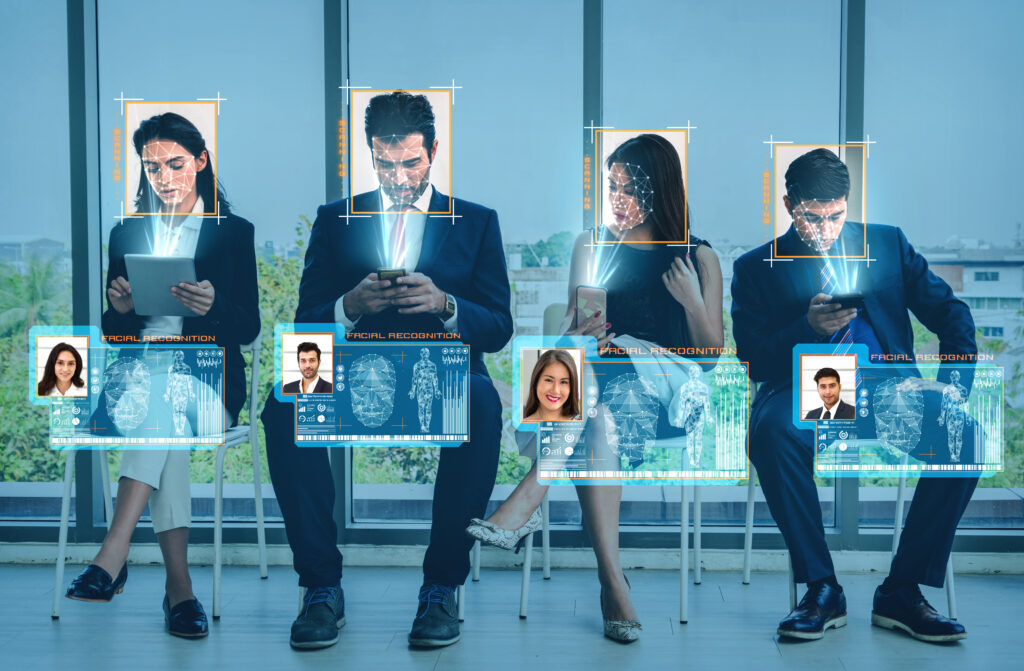
Description: 30 mins. There is increasing interest in the use of algorithmic audits to assess whether an AI system and its use align with ethical principles or regulation. Audits have been used, for example, to assess whether AI systems used in the work place prevent bias and discrimination. Some legislators, such as the New York City Council, have made auditing mandatory for some AI-based employment decision tools. Are algorithmic audits the answer to ensuring an ethical use of AI in the workplace? In this session, Christo Wilson and Stefano Scarpetta will discuss the potential and limitations of algorithmic auditing.
Moderator: Stefano Scarpetta, Director for Employment, Labour, and Social Affairs, OECD
Speaker: Christo Wilson – Associate Professor, Khoury College of Computer Sciences, Northeastern University
















